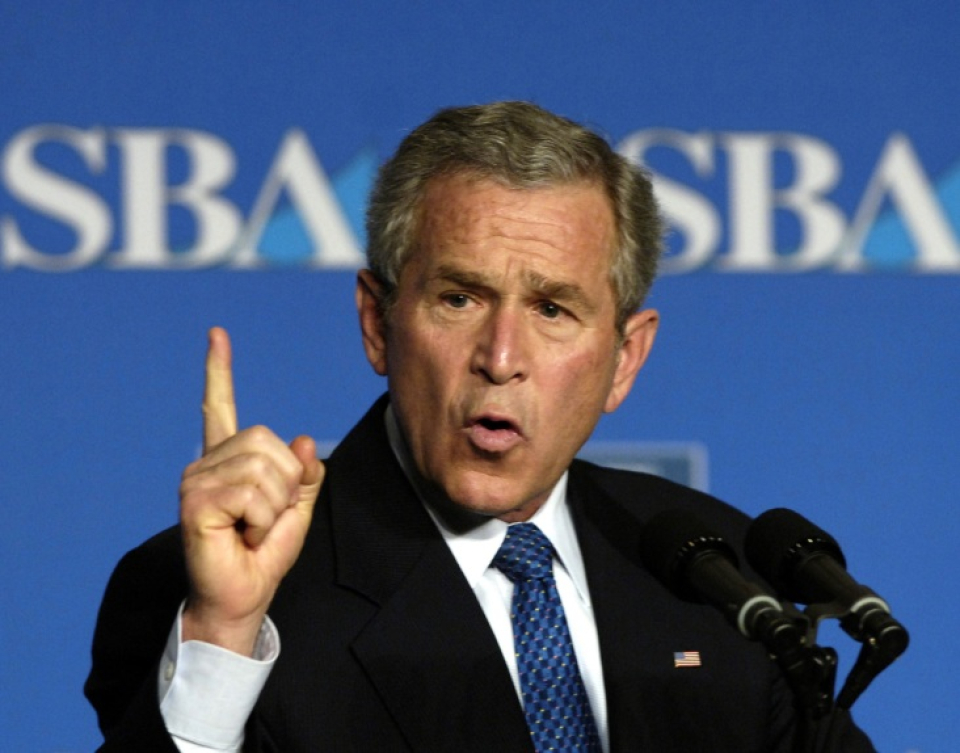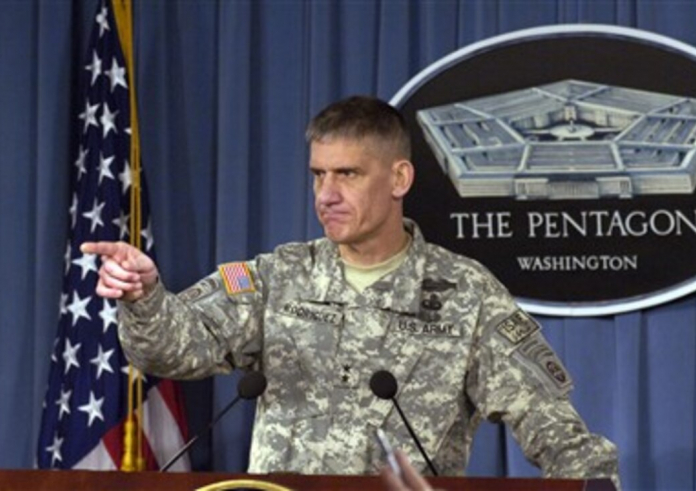By Sal Rodriguez

This past week, the United States military walked back its announcement of a drone strike against a “senior al Qaeda leader” in Syria.
“At 11:42 am local Syrian time on 3 May, US Central Command Forces conducted a unilateral strike in Northwest Syria targeting a senior Al Qaeda leader,” tweeted CENTCOM a couple of weeks ago. “We will provide more information as operational details become available.”
But it turns out that the person killed by the U.S. military wasn’t an Al-Qaeda terrorist, but a 56-year old shepherd and father of 10 named Loutfi Hassan Mesto.
The Washington Post noted the shepherd’s simple life: “Mesto’s neighbors described his routines of drinking tea with family and friends, tending to his animals and leaving home mostly to pray at his mosque.”
Then one of America’s freedom missiles struck.
“When we went over the mountain, we saw Loutfi dead with six of his sheep,” his brother told CNN.
The U.S. military: still losing hearts and minds, one civilian at a time.
These kinds of killings and disregard for life have characterized U.S. foreign policy for some time, especially in America’s post-9/11 wars.
Around the same time as Loutfi’s murder was circulating, the Costs of War project out of Brown University released an updated tally of how many people have been killed in America’s wars over the last 20 years. Tragically, researchers put the death toll as high as 4.5 million.
“Some people were killed in the fighting, but far more, especially children, have been killed by the reverberating effects of war, such as the spread of disease,” the researchers note.
This devastation, of course, has been a bipartisan affair. With the sort of exception of the MAGA right when it comes to U.S. support for Ukraine, Republicans generally love war. Delusions of a West-versus-Islam existential battle dominated right-wing imaginations for the first decade of the 2000s.
But maybe even more insidious has been Democratic support for the war machine. This includes President Joe Biden, who voted for the wars in Afghanistan and Iraq. As did Pasadena Congressman Adam Schiff. As did Hillary Clinton. As did Sen. Dianne Feinstein. You know, the people who are considered decent, sensible liberals.
Even Nobel Peace Prize-winner Barack Obama was more than happy to help the Saudis bomb funerals and starve kids to death. At least Obama had the decency to publicly apologize for bombing a Doctors Without Borders hospital in Afghanistan in October 2015, where dozens of people were killed. He wasn’t sorry for the 2011 drone killing of 16-year old American citizen Abdulrahman al-Awlaki in Yemen.
Somewhere around here, some very confused anti-war people start trying to give former President Donald Trump credit for not starting a new war. And while they’re right that he didn’t start a new war, they leave out that Trump also didn’t end any wars. He insisted on keeping the Obama-Saudi war in Yemen going (vetoing congressional efforts to stop it), he ramped up violence in Afghanistan (resulting in a spike in civilian deaths) and ramped up drone strikes in Somalia.
Fortunately, President Biden scaled back U.S.-involvement in Saudi Arabia’s war in Yemen and ended the war in Afghanistan (despite Republican whining).
But, clearly, the U.S. government’s body count continues to climb because the U.S. perpetually feels the need to stay militarily involved somewhere. And innocent people continue to pay the price.
Source: Pasadena

















